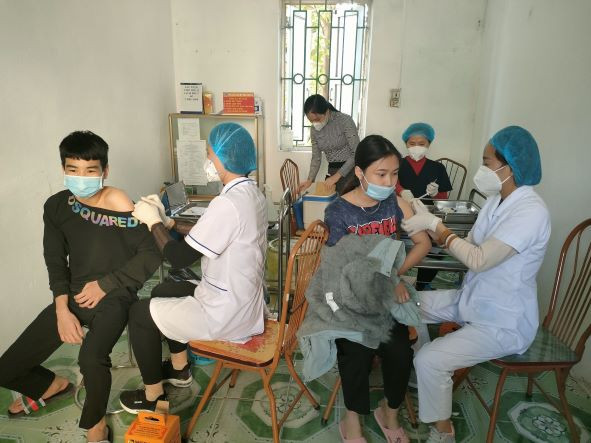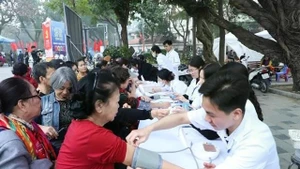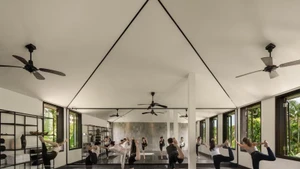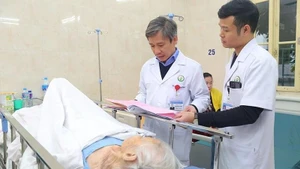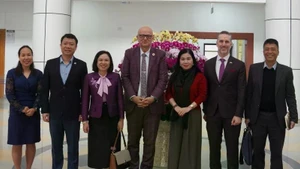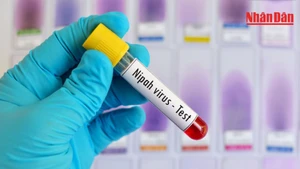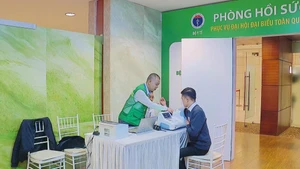Implementing Resolution No.27-NQ/TU, dated May 26, 2022, by the Standing Committee of Hung Yen Provincial Party Committee on the Project for Developing Primary Healthcare, Preventive Medicine, and Population Work for the 2021-2025 period, with orientation to 2030, the efforts in protecting, caring for, and improving public health in Hung Yen Province have seen significant progress. Resources allocated for the development of primary healthcare, preventive medicine, and population work have been prioritised, with funding arranged to organise professional training courses and update knowledge for healthcare staff. Medium-term public investment capital has been allocated to purchase specialised equipment for district health centres during the 2021-2025 period. Funds have also been directed toward building, renovating, and upgrading district health centres.
Using budget resources, a project has been approved to construct, upgrade, and expand 40 commune health stations and purchase medical equipment for 155 commune-level health stations.
Notably, the movement to build advanced and model new-style rural areas across Hung Yen Province has led to positive changes in primary healthcare. In the localities developing advanced and model new rural areas, communal health stations have been strengthened and equipped to meet the standards for healthcare criteria.
At Ham Tu Commune Health Station in Khoai Chau District, Hung Yen Province, physician Nguyen Thi Huyen said since the local health station has received investments in infrastructure, equipment, and personnel, the rate of residents participating in health insurance has significantly increased. When they fall ill, people now visit the commune health station for examinations and treatment medication. Each month, the station receives hundreds of patients for check-ups.
To improve the quality of medical examinations and treatments, Tien Lu District Health Centre in Hung Yen Province continues to maintain and implement several new techniques that are covered by health insurance, such as cell aspiration, biopsies, and collaborations with higher-level hospitals for early detection tests, cancer screenings, and colon and gastric endoscopies to detect gastrointestinal issues, ulcers, polyps, and early-stage cancers. Additionally, they offer bone density testing using Dexa methods, echocardiograms, and CT scans.
The centre has rolled out new technical and high-tech services covered by health insurance, enabling residents in the district and nearby areas to access healthcare services conveniently. The centre has also been focusing on training and improving the quality of its staff to meet healthcare demands.
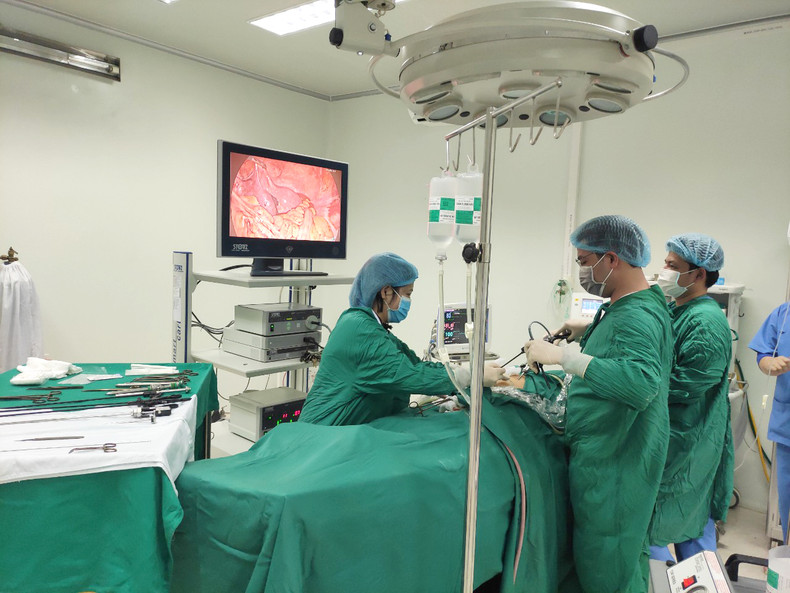 |
As of the end of 2023, 100% of district health centres in Hung Yen Province have implemented 90% of the technical procedures required at the district level. Additionally, 100% of commune health stations have fully carried out all aspects of primary healthcare and implemented at least 90% of the technical procedures at the commune level. The health insurance coverage rate has reached 93.8% of the population, the stunting rate among children under five years old is below 19.4%, the average life expectancy is 75.50 years, and the total fertility rate is 2.3 children per woman of reproductive age.
The healthcare network, from the provincial to the local levels, has been continuously strengthened and improved its operational efficiency. In the efforts to achieve universal health coverage, the functionality of the service delivery network, particularly primary healthcare, has been ensured. All citizens have access to high-quality basic healthcare services, with a diversification of healthcare services, including the development of home and private healthcare services. Currently, the province's healthcare system consists of two general hospitals, six specialised hospitals, four centres, two provincial-level sub-departments, ten multifunctional health centres at the district level and 155 communes, wards, and town health stations.
The quality of medical examination and treatment at all levels continues to be improved. The benefits of healthcare for health insurance participants have been expanded, with strong coordination and integration between provincial and district levels and increased support from central hospitals. There has been close coordination between medical examination and treatment services, rehabilitation, disease prevention and primary healthcare services. The role of specialised and high-tech medical units has been maximised in transferring technology and providing professional support to the entire service delivery network.
To continue improving the quality of medical examinations, treatments, and healthcare for the people, Deputy Chairman of Hung Yen Provincial People's Committee, Nguyen Duy Hung, stated that in the near future, the local Party committees and authorities at all levels, particularly the healthcare sector, will continue to strengthen, develop, and enhance the quality of medical examination and treatment services and improve the quality of population and family planning services and reproductive healthcare. The development of human resources will be enhanced, and the organisation of the healthcare network at all levels will be further consolidated and refined. In addition, investment will be allocated to improve the capacity of the healthcare system, with a priority on developing the primary healthcare network. In particular, in 2024, the Hung Yen Provincial People's Committee has signed a memorandum of cooperation with Bach Mai Hospital for the 2024-2030 period, encompassing various aspects. The focus will be on transferring expertise and practical medical techniques, including areas such as cardiology and interventional cardiology; urology and dialysis; emergency care and toxicology; neurology and musculoskeletal disorders; endocrinology, gastroenterology, respiratory medicine, clinical immunology and allergy; haematology and blood transfusion; rehabilitation, psychiatry, surgery, paediatrics, obstetrics; Infectious diseases, imaging diagnostics (MRI, CT scans, interventional radiology); laboratory testing, clinical nutrition, hospital infection control, and other clinical and paraclinical specialties as needed. Bạch Mai Hospital will support the application of information technology, digital transformation, and marketing; provide assistance and consultancy for high-tech medical services; and advise on establishing and implementing high-quality healthcare services at healthcare units in Hung Yen Province.
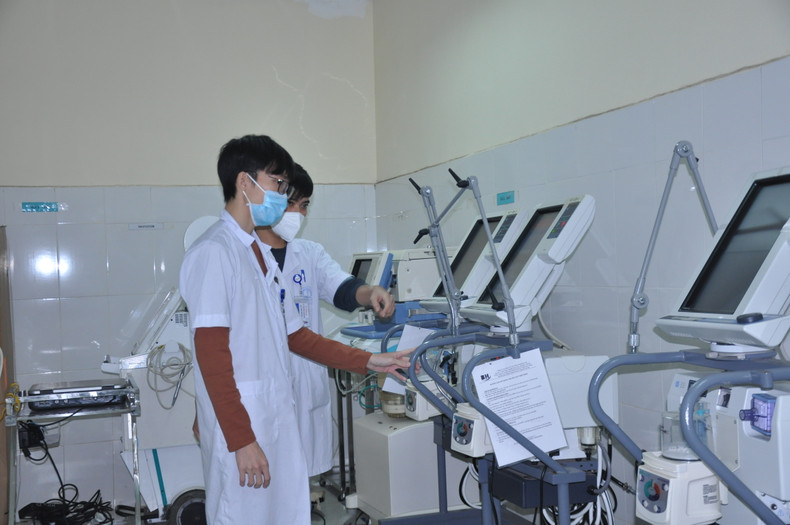 |
Strengthening and developing the traditional medicine and pharmacy system, in combination with modern medicine, will gradually improve the quality of medical examinations and treatments using traditional medicine. The healthcare system focuses on traditional medicine, and pharmacy will be developed at provincial and local levels.
There is ongoing investment in preventive healthcare, with specialised units monitoring diseases and supervision following regulations. The monitoring of infectious diseases with epidemic potential is carried out regularly. Units are also responsible for developing and implementing plans for flood prevention and disaster mitigation according to regulations.
The Hung Yen Provincial Department of Health will frequently collaborate with various sectors and organisations to carry out awareness campaigns and disseminate regulatory documents, thereby enhancing public awareness of food safety, preventing food poisoning, and raising the responsibility of food production, processing, and business owners. This effort helps reduce violations related to food safety.
